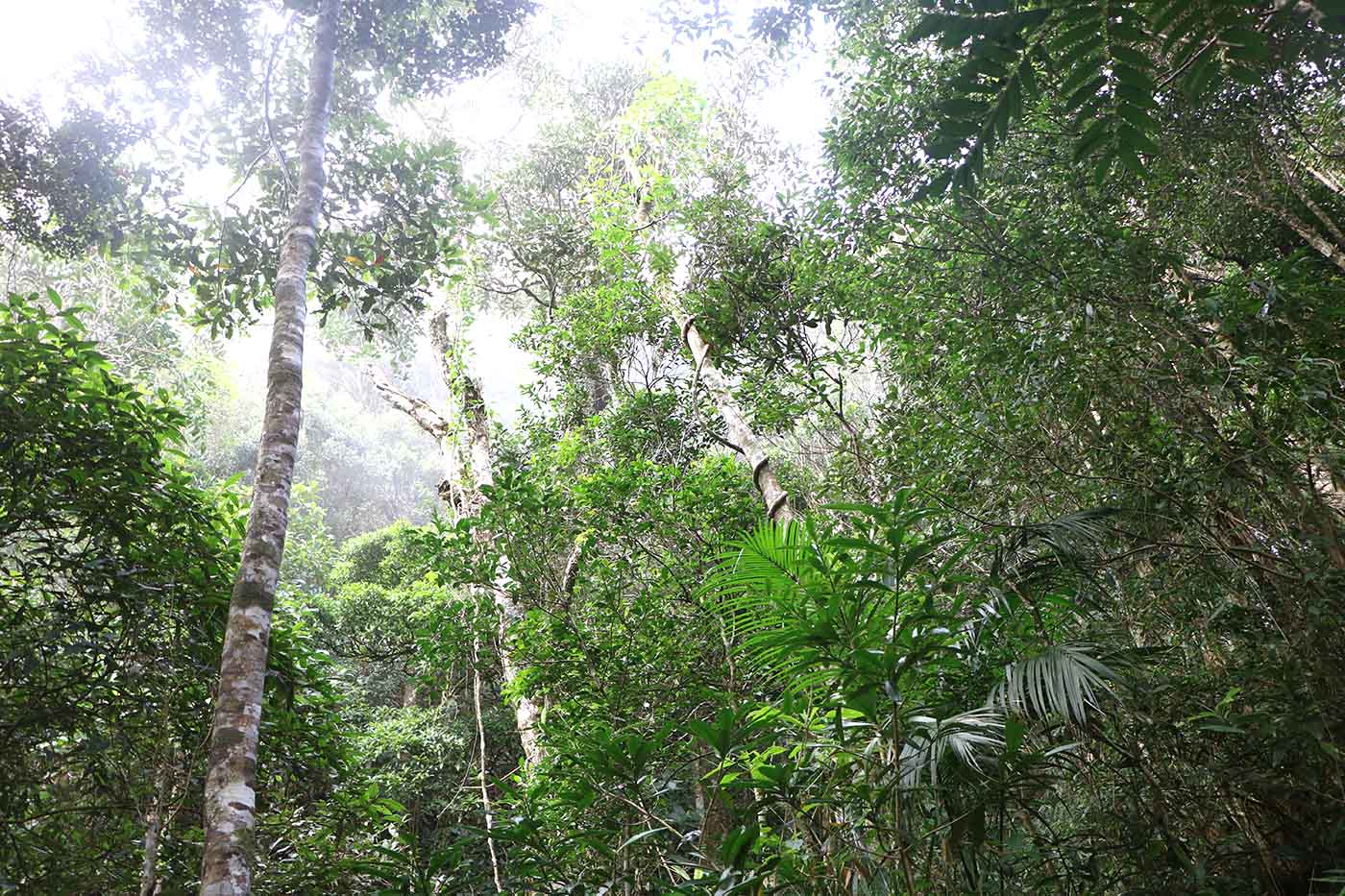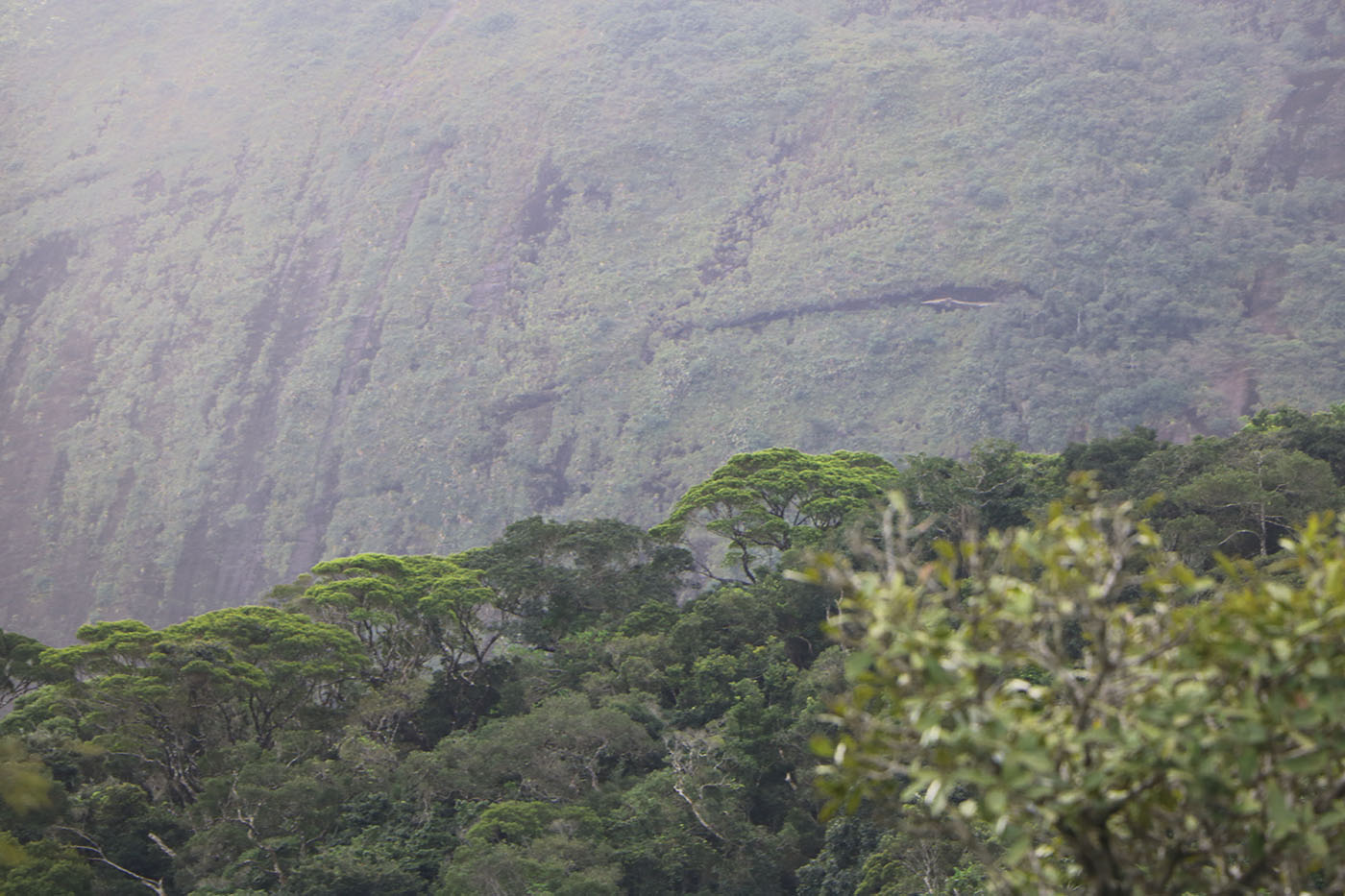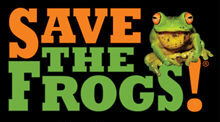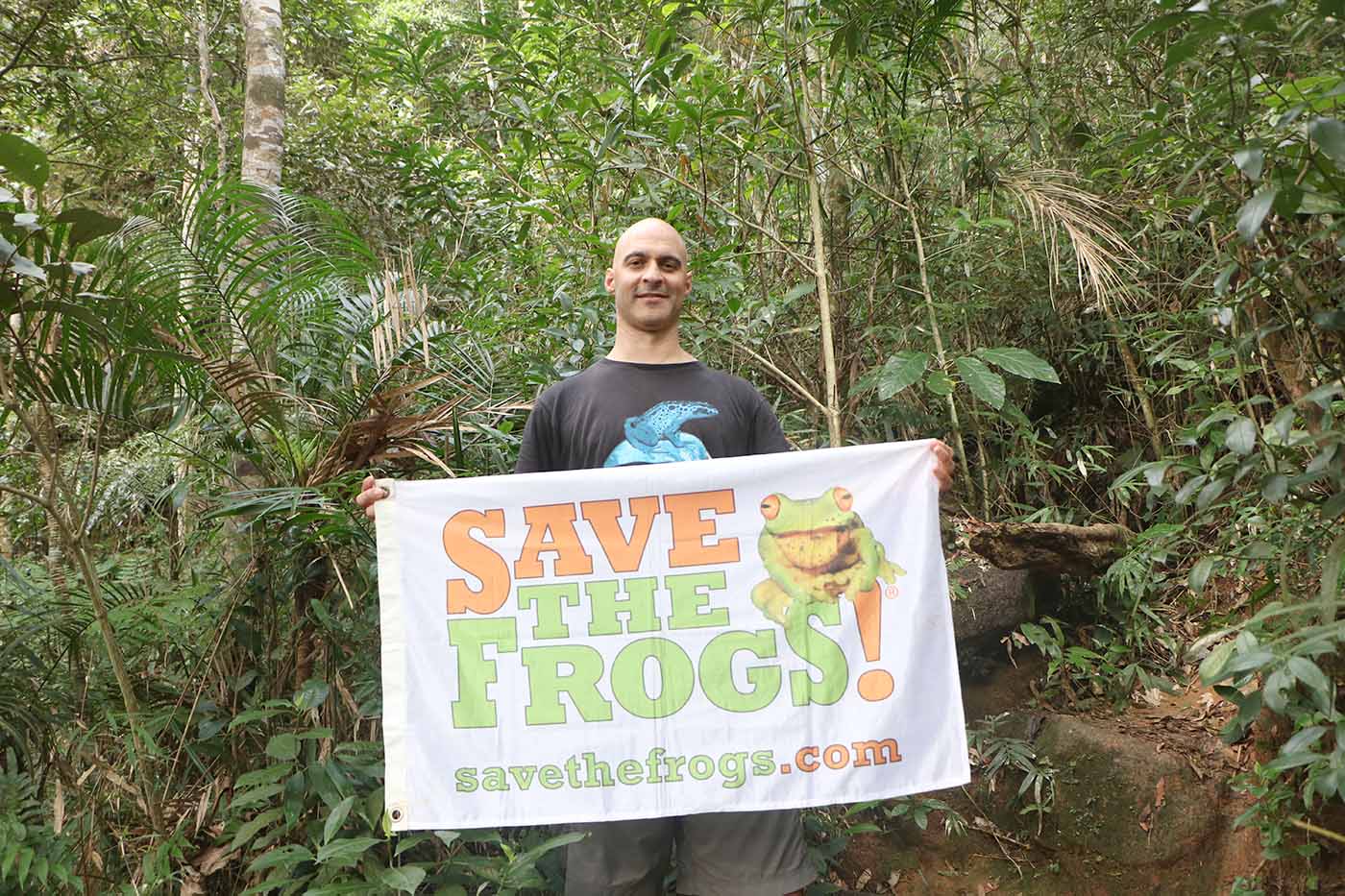SAVE THE FROGS! Founder Dr. Kerry Kriger was recently nominated for the Mulago Foundation’s Henry Arnhold Fellowship. The one-year fellowship is a mix of money ($100,000 unrestricted), support, mentorship, and connections. Fellowship recipients meet for two separate one-week-long design courses on the coast of California. The fellowships are awarded to eight conservation leaders and help them design high-impact solutions and strategies for better, faster, bigger outcomes; build the organizations to deliver those solutions; and increase their connections with a growing community of pioneers in conservation.

Atlantic Rainforest, Parque Tijuca, Rio de Janeiro, Brazil
Nomination Letter from Dr. Victor Eichler
“It is my pleasure to nominate Kerry Kriger, Ph.D., Founder and Director of the Save The Frogs! Organization for a Henry Arnhold Fellowship of the Mulago Foundation.
It is my understanding that the Foundation’s threefold goals are to fund (a) priority world problems, (b) problems with scalable solutions, and (c) organizations that can deliver the identified and planned solutions.
With so many pressing problems in our world none impacts our human futures more than the loss of biodiversity on this planet, and no group of animals is heading faster to extinction of species than the amphibians among us. Frogs, toads and salamanders, while not as obvious to most people as birds and mammals, are incredibly sensitive to pollution of the air we breathe and the water we drink and are accurate monitors of the elements we depend on for our lives. The loss of hundreds of amphibian species in the wild over the past fifty years is staggering; this is truly a priority world problem!
There are many scalable solutions to reverse the trend of loss of biological life on planet Earth, and one that multiplies through the efforts of many people is fostering education throughout populations around the world, particularly among young people with the focus and energy to help their communities. Through SAVE THE FROGS!, Dr. Kerry Kriger has mobilized communities through the creation of educational literature, presentations and activities (art and poetry contests, through Save The Frogs Day, workshops to make frog habitats, field tours in many countries to educate folks where the problems exist, etc.) that make a difference in motivating citizens to become involved in understanding the problems and then attacking them with enthusiasm. He and members of his organization have done this in almost sixty countries around the world.
A second scalable solution which has obtained success is to propose legislation which can be adopted by local and state assemblies for the betterment of native fauna. Examples of legislative successes spearheaded by Dr. Kriger are legislation by the city and county of Santa Cruz, California that prevent non-native species of frogs from being imported which are predators of native frogs, with disasterous effects. Dr. Kriger also spearheaded efforts that resulted in California Governor Jerry Brown signing his approval of a bill that made an endangered frog the official state amphibian, thereby highlighting efforts to present the native species from decline and possible extinction.
This organization – SAVE THE FROGS! – a 501(c)(3) public charity, through the untiring efforts of the founder and director, Dr. Kerry Kriger, has shown that without a doubt it can deliver the identified and planned solutions with great success. The list of successes in the above-mentioned areas is so long that I will request the organization to send you a list of ways that it has made a difference in the world.
I am pleased to know that the Henry Arnhold Fellowship exists and I can think of no more worthy recipient than Kerry Kriger, founder and director of SAVE THE FROGS!
Respectfully submitted,
Victor B. Eichler, Ph.D., Retired Professor of Biological Sciences”

Atlantic rainforest frog habitat in the mountains of Parque Tijuca, Rio de Janeiro, Brazil
“When I heard that you’ve been nominated for this year’s Henry Arnold Fellowship (Mulago), I was stoked and confident that you’ll win the award”.
— Biraj Shrestha, Amphibian Biologist, Nepal



